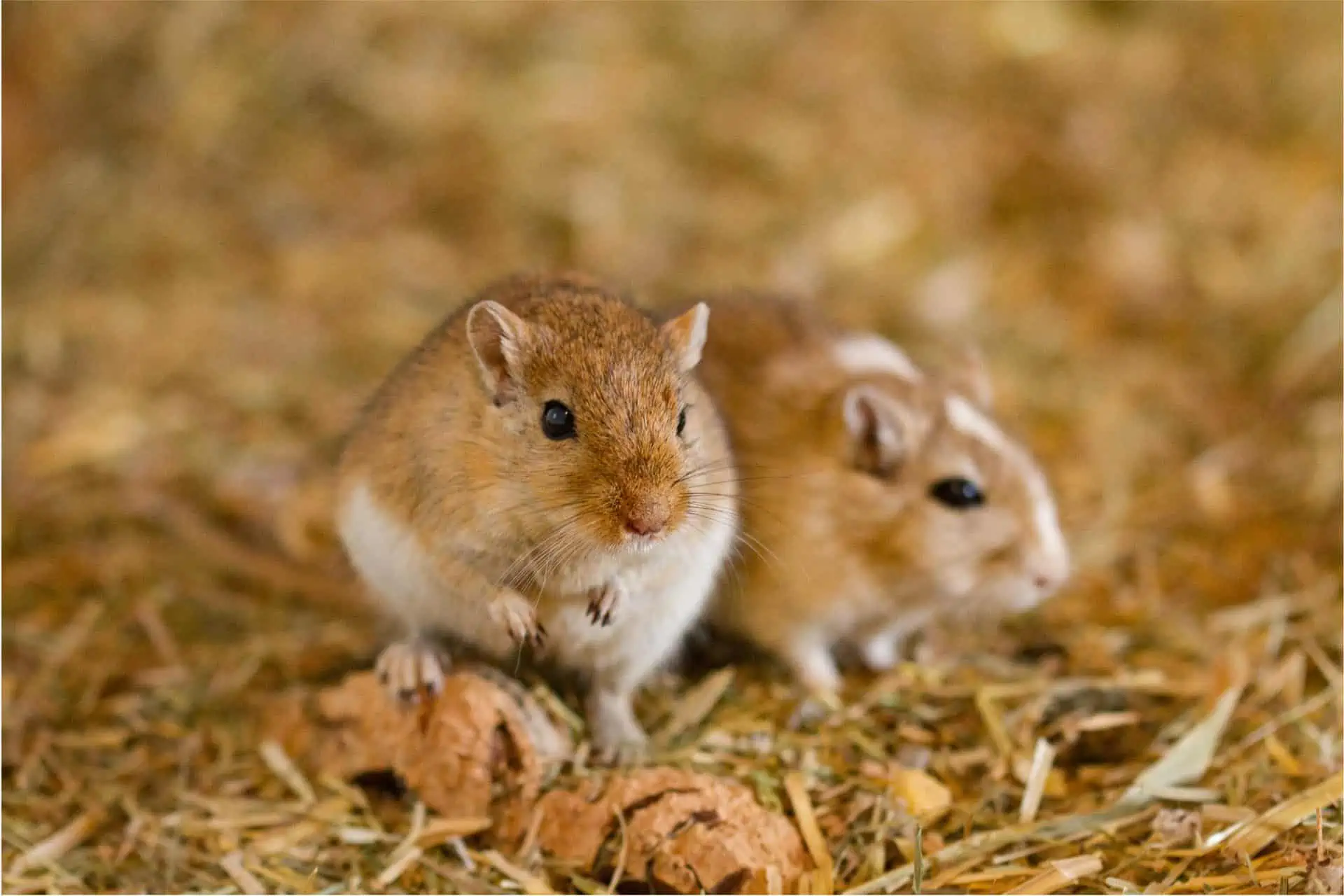In their natural habitat of arid grasslands and deserts, wild gerbils forage for a variety of foods, including seeds of various grasses, leaves and herbs. They’ll also happily chow down on locusts, worms and beetles.
If you’re wondering what can gerbils eat when kept as pets, these small omnivores need a good quality, balanced diet that includes specially designed gerbil food.
A gerbil diet should contain protein and fibre to help their digestive system function correctly, as well as all the essential nutrients and minerals they need for bone, teeth and heart health, and to support a healthy coat. Gerbils also enjoy small portions of gerbil-safe fruit and vegetables.
What should a gerbil diet consist of?
A healthy gerbil diet should comprise of:
- Nutrition-packed nuggets – especially designed for gerbils that replicates their natural diet – steer away from ‘muesli-type’ mixtures as gerbils may pick out the bits that are high in sugar, which can cause painful problems with their teeth, and lead to an imbalanced diet.
- Sometasty, high-quality feeding hay is great for gnawing, along with some untreated softwood such as hawthorn, hazelnut, pear, poplar or apple wood to chew. This will help keep their teeth healthy and stop them getting overgrown.
- An occasional treat of gerbil-safe fresh food, such as a small piece of fruit or vegetable, but be aware that too much green food can cause diarrhoea. Before you give your gerbil pals any fresh food, make sure you know what’s safe for them and what’s not.
Gerbils also need a constant supply of fresh drinking water. Choose a bottle with a valveless sipper tube to make it easier for them to have a refreshing drink. Ensure the spout is placed at the appropriate height.
What fruits can gerbils eat?
Wondering whether gerbils can eat blueberries? Yes, they can! Wild gerbils will naturally eat any fruit they come across (although this can be quite rare in a desert!), so small amounts of fresh fruit will be enjoyed as a treat. However, fruit is high in sugar, so too much can cause obesity.
Along with berries, such as strawberries, raspberries and blueberries, animal charity PDSA advises that the following fruits are suitable for gerbils – but only give them a tiny portion:
- Apple
- Pear
- Peach
- Melon
Can gerbils eat oranges?
No. NEVER feed citrus fruits, rhubarb or grapes to your gerbils as these are toxic to rodents.
What vegetables can gerbils eat?
When planning a gerbil diet, some fresh veg (think small slices or cubes) will provide some welcome variety. Gerbils like to sit up and hold pieces of food in their paws to munch on.
PDSA advises that the following vegetables and herbs are suitable for gerbils.
- Carrot,
- Broccoli
- Cabbage
- Cauliflower
- Chicory
- Spinach
- Sweet peppers
- Cucumber
- Cress
- Courgette
- Fennel
- Pumpkin
- Basil
- Sage
- Parsley
- Coriander
Quick tip
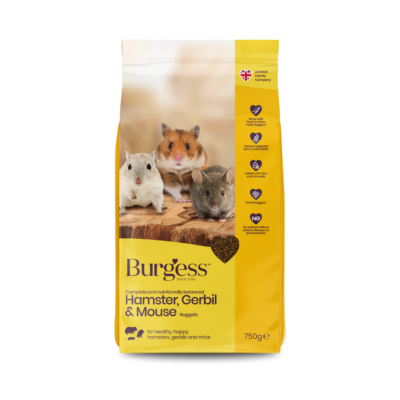
Hamster, Gerbil & Mouse
What foods should gerbils avoid?
Wondering what human food can gerbils eat? The answer might surprise you. Apart from safe fresh foods, gerbils should NEVER be given human foods. Foods to avoid include:
- Gerbil muesli – Muesli-based gerbil diets encourage selective feeding, where gerbils eat high starch/sugar components of the muesli while rejecting the more fibrous pellets. This means they’ll lack the nutrition that they need.
- Sweet treats – Colourful gerbil treats are often very high in sugar, and bad for your gerbils’ teeth and tummy.
- Nuts and certain seeds – Gerbils don’t naturally eat nuts, which are very high in fat, as are sunflower seeds. Pumpkin seeds are a better choice as an occasional treat.
- Human food – High carb bread, pasta, crackers and biscuits can cause digestive problems. Chocolate and dairy products are particularly dangerous and citrus fruit can upset their sensitive tummies. Potatoes, tomato leaves, onions and garlic are also poisonous to rodents.
Ultimately, if you’re not sure if something’s safe for your gerbils to eat, it’s best avoided.
.
Gerbil feeding plan
How often should you feed a gerbil?
Feed your gerbils once a day. As these small rodents are diurnal, which means they are active during the daytime, the best feeding time is in the morning. Only feed the amount of gerbil food they need each day – around a tablespoon of gerbil nuggets daily.
In the wild, gerbils spend hours each day searching and digging for food. Rather than just putting your gerbils’ favourite food in a gnaw-proof ceramic bowl, scattering some of it around encourages natural foraging behaviour. Gerbils are inveterate hoarders – so stay vigilant and remove any stale food items they’ve stashed away.
Chewing, gnawing and shredding stuff is a natural gerbil behaviour, so provide a variety of things for them to get their teeth into such as cardboard, coconut shells, hay bars, pumice stone, banana leaves and seagrass toys.
Why choose Burgess for your gerbils' food?
Our factory in Yorkshire produces only the best quality gerbil food, made from nutritiously balanced ingredients. With high-quality feeding hay and tasty nuggets, your gerbils will get all the vitamins and minerals they need.
What’s more, it’s easy to order online and you’ll get free delivery over £25.
DON'T FORGET
Perfect for your Gerbil
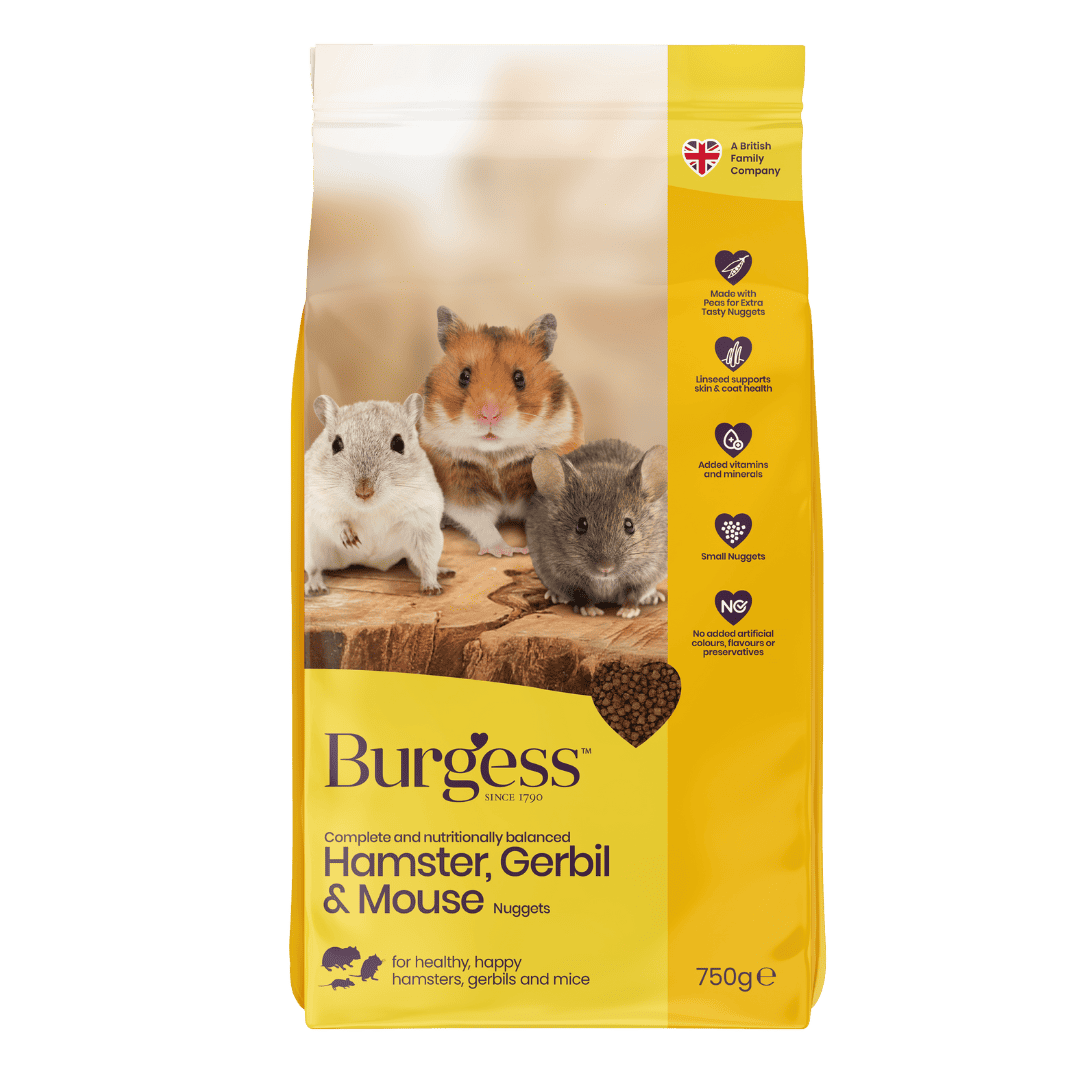

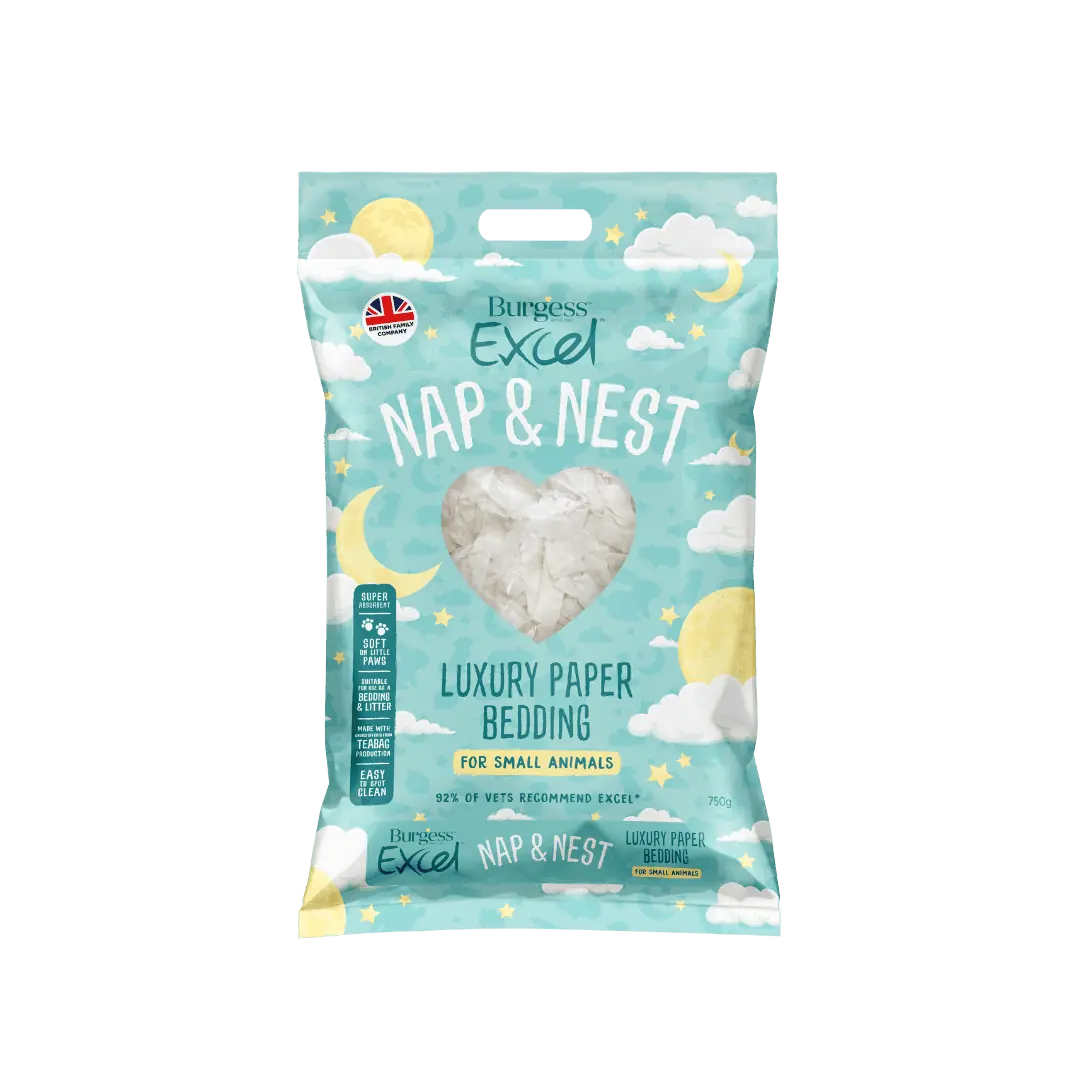
Transitioning to Burgess Excel nuggets

Do you need more advice?
If you’re at all unsure about the best way of feeding your gerbils, or have any concerns about specific nutritional requirements, ask your local veterinary practice for advice.
You can get in touch with our customer care team who will respond in 3-5 working days. Our dedicated team of pet experts will help you make the right choice.
Are your gerbils Burgess gerbils? Join the Burgess Pet Club for exclusive offers and rewards.

